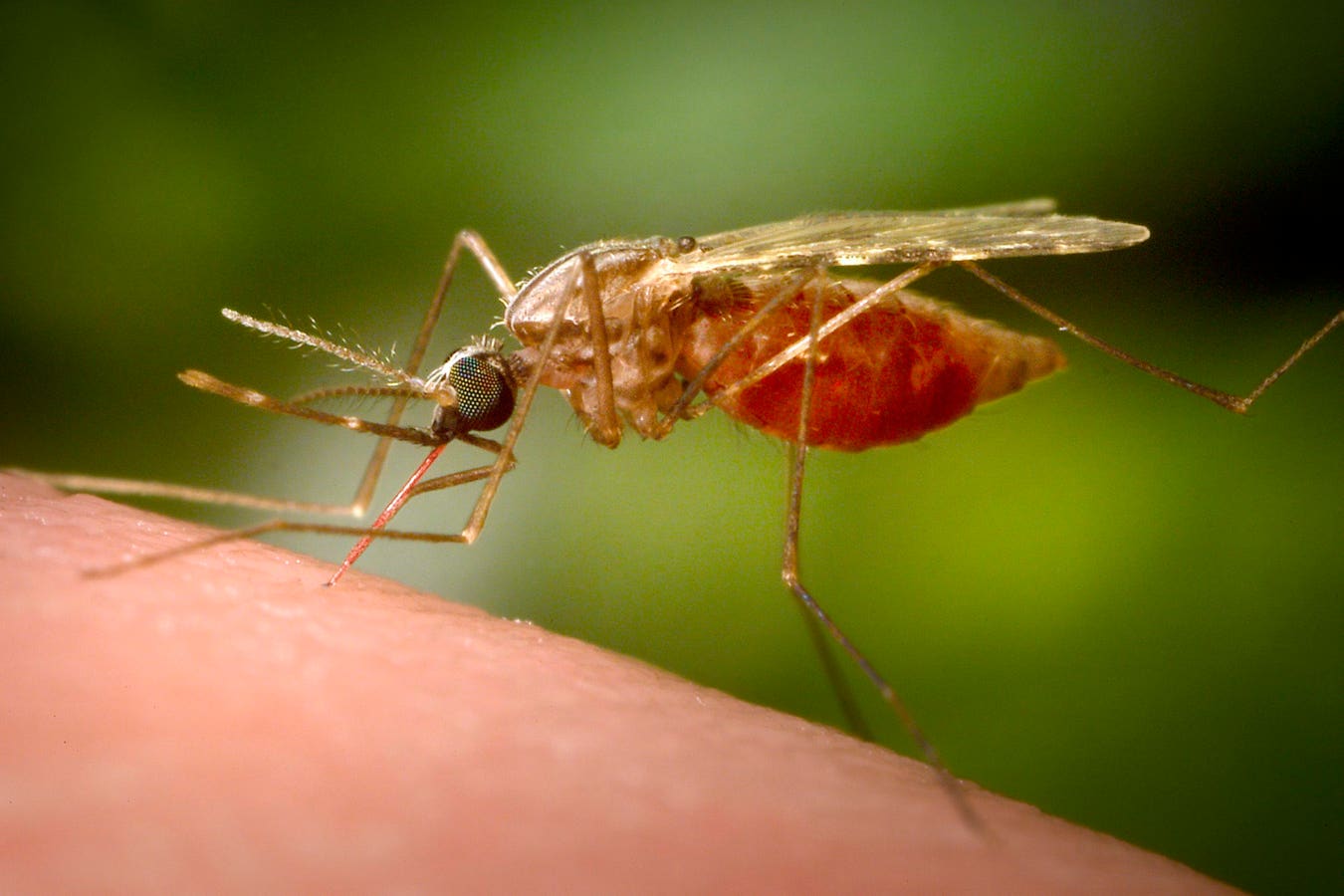Health
New Hampshire man dies from EEE. What you need to know about this mosquito-borne infection

This 2014 photo provided by the U.S. Centers for Disease Control and Prevention shows a … [+]
Update, 4:35 PM ET: This story, originally published at 2:14 PM, has been updated with information about a fatal case of EEE in New Hampshire.
A rare but deadly virus – eastern equine encephalitis – was discovered this week in two adult patients, one of whom was an 80-year-old man in Massachusetts and the other a New Hampshire resident who has reportedly died from the infection. Officials in the northeastern states are calling for awareness and vigilance among community members to prevent new cases. So far this year, there have been four documented cases in the United States.
What is Eastern Equine Encephalitis?
Eastern equine encephalitis, also known as EEE, is a virus transmitted to humans through the bite of an infected mosquito. The virus is endemic to the northeastern US and circulates naturally among mosquitoes and birds. After a mosquito bite, the virus can cause rare infections in humans and horses, which are considered dead-end hosts. This is because it cannot be spread further from an infected human or horse to a mosquito that can consume a subsequent blood meal.
Cases of EEE are most common in the spring and summer months in the US, when the mosquito vector is most prominent. Over the past two decades, EEE has caused an average of nine to ten human cases per year in the US
What are the symptoms of EEE?
Most individuals infected with EEE do not develop any symptoms. However, in about 30% of cases, symptoms can be severe and lead to death. After an average incubation period of four to 10 days after a mosquito bite, an infected person may develop fever, body aches, shaking, chills, and possibly joint pain. Then the infection can lead to meningitis or encephalitis, which can result in headaches, confusion, seizures and coma. Among those who survive neurological disease after infection with EEE, many continue to experience a range of physical and mental disturbances, including seizures, intellectual problems and paralysis. Symptoms can be especially severe in very young children and the elderly.
Are there vaccines or medicines for EEE?
Unfortunately, there are no vaccines or antivirals specifically approved for preventing or treating EEE. In mild to moderate cases, patients are often treated with supportive care, including hydration and treatment with over-the-counter medications to control pain and fever. Those who are hospitalized often require more aggressive supportive care. Antibiotics are not effective for treating EEE infection.
Are there tests available to diagnose EEE?
Although tests for EEE are not widely available, selected clinical and public health laboratories can perform tests. The diagnosis of EEE is usually based on the clinical presentation – i.e. a febrile illness with neurological symptoms in a patient recently exposed to mosquitoes – with confirmation by serology or molecular testing. Serological tests look for antibodies in the blood generated in response to the infection; However, it may take one to two weeks after infection for antibodies to reach detectable levels. Molecular or PCR tests can be used to detect viral RNA in samples, such as blood or cerebrospinal fluid.
Corn plants grow in standing water in a field. Standing water is a source for mosquito breeding.
How to prevent EEE infections
In cities near the recent human cases, officials are urging citizens not to go out after sunset. This is because mosquitoes are most active in the dark. People can also avoid mosquito bites by using insect repellents and wearing long pants and shirts if they must be outside during times when mosquitoes are active.
It is also important to reduce the prevalence of mosquito breeding areas, including any location with standing water. Take the time to look around your property and ensure that empty plant pots are turned upside down and that old tires are not filled with standing water. These simple steps can help reduce transmission of EEE, along with other potentially serious mosquito-borne infections.













